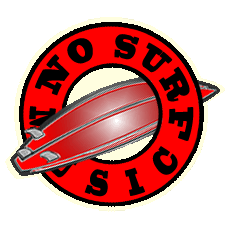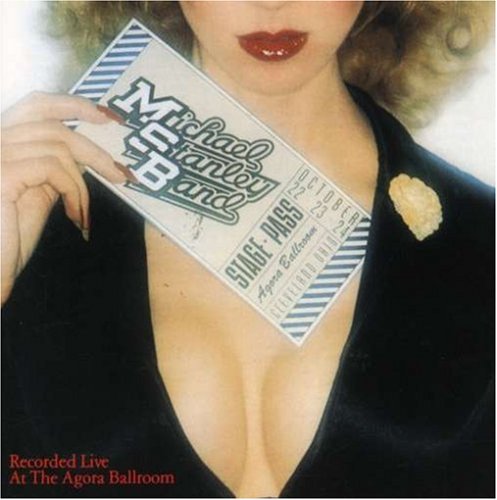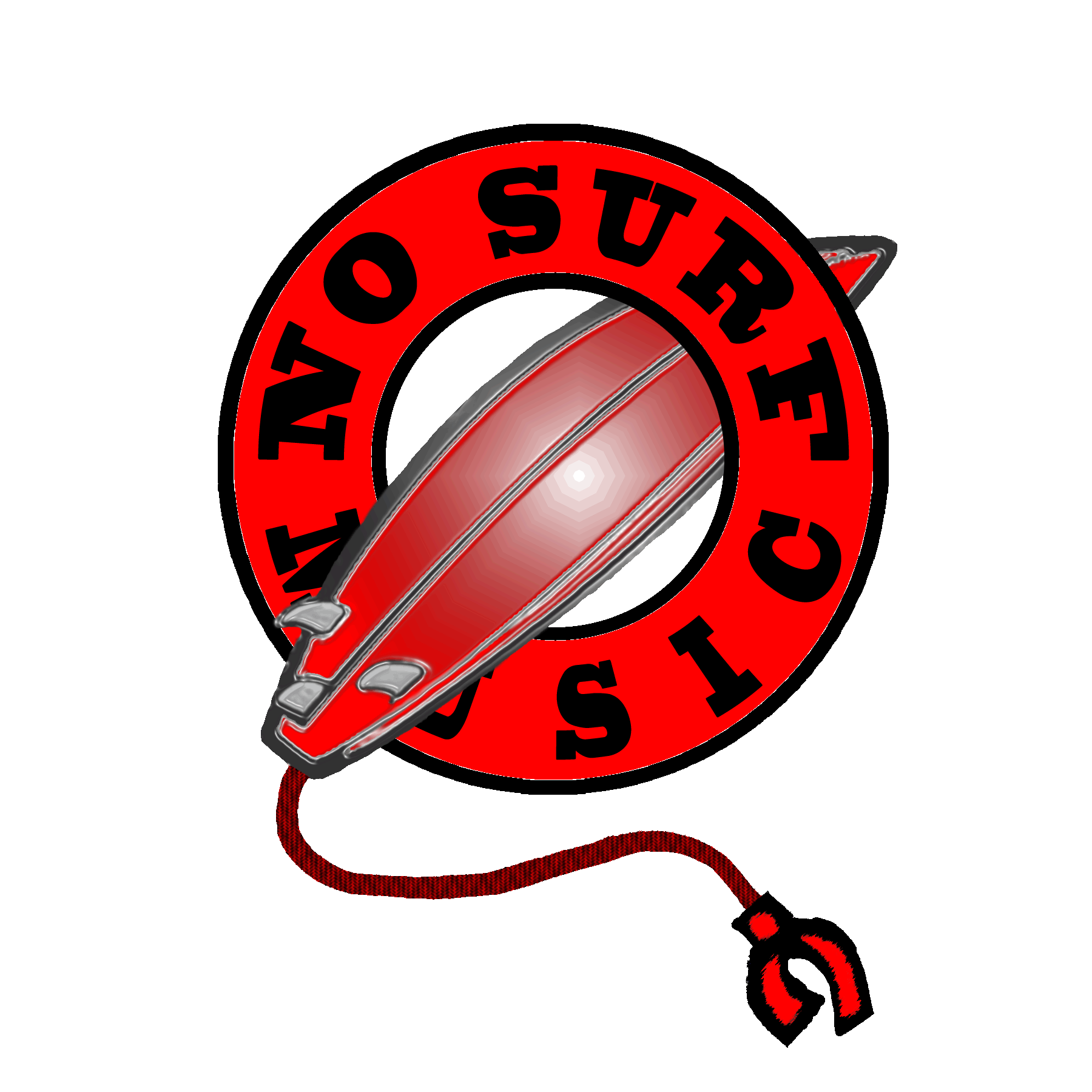
The Lowdown:
May 9, 2011
Michael Stanley Band: Stagepass
by Jason D. 'Diesel' Hamad
It’s often said by those in the know that Townes Van Zandt is the greatest songwriter nobody’s ever heard of. Despite the almost beatified reverence accorded to him by the small niche of outlaw and alt.country fandom, ask a hundred people on the street who he is and all you’ll get are blank stares.
If Townes is the greatest songwriter nobody’s ever heard of, then Michael Stanley is likely the runner-up. Well, ok, it’s not exactly true that no one knows his name. Kids in Cleveland today might recognize him as the afternoon drive time disk jockey on 98.5, WNCX… you know, the guy their parents always listen to when they’re driving home from football practice. Those just a little bit older will remember him as the hirsute co-host of PM Magazine, the local version of a once-popular news and entertainment series. But if you ask any Clevelander who graduated high school after 1986 to name even one of his songs, you’ll probably just get the finger (people in Cleveland are cranky since LeBron left). And if you ask a hundred people outside of Cleveland who he is, well, you might as well be asking about the substructure of a Higgs boson.
It’s hard to believe that there was a time when Michael Stanley Band was the next big thing. Once upon a time (like the mid-1970’s to the early-1980’s), they set the attendance records at every music venue of any size all the way from St. Louis to Pittsburg (and some of those records still stand). They opened tours for Foreigner and the Eagles. They were a favorite of legendary producer Bill Szymczyk and musicians like Joe Walsh, Todd Rundgren, and David Sanborn. Stanley was even occasionally mentioned in the same breath as the Boss. That Boss. Yep, it’s hard to believe.
But then again, it isn’t. First of all, Michael Stanley is a world-class talent. His lyrics get to the heart of the working class psyche better than anyone before or since. They are complex and heartfelt. Second, MSB rocked. They rocked hard. They were talented musicians and they had that Heartland Rock sound that Springsteen had invented and that was coming to the fore just as they were hitting their stride. Third, everybody loves an underdog, and if a bunch of working class kids from Liverpool can become the biggest band in the world, why not a bunch of working class kids from Cleveland?
Unfortunately, they just missed. Why? Elementary. The music industry sucks. Stanley said it best when he wrote:
But then something went wrong
And he watched as his songs
Met a slow death of silence, but worse
He was taken to task by some critics who asked
Do you write the words or lyrics first?
It’s a fucked up world we live in and while it may not compare to genocide or terrorism or famine or… well, Wall Street… the music industry is one of the most fucked up things there is. Why do talentless musical abortionists like Lady Gaga become giant celebrities while even as we speak a girl you’ve never heard of named Kelley McRae—who can write a song that would make Lee Marvin weep—is driving around the country living in her van and playing for tips? I don’t know, but it has something to do with money… money and greed. MSB cracked the top 40, but they just never had that one big hit that unlocked the doors. In the Midwest they loved ‘em—in the steel towns and the car towns and the iron towns and the glass towns and the rubber towns and the farm towns—but if it didn’t get played on the radio in L.A., it just didn’t count. Michael Stanley Band just didn’t make money for the right people, so no matter how good they were... well, they were history. In 1987, MSB announced that they were breaking up… but not before selling out ten straight farewell shows at the Front Row Theater near Cleveland.
But much like la Résistance, Michael Stanley Band lives on. Go to your favorite record store (you know, that dusty place they sell music on physical media… posters, cash register, Molly Ringwald doing her nails behind the counter) and look for a box hidden away in some dark, forgotten corner labeled “Misc. 70’s” or maybe even “$1.” There you’ll find it: dusty gold. Because what MSB left behind was their music. And it’s quite a legacy for those brave enough to seek it out.
Many people will argue that their best album was the 1980 studio release Heartland, but for my money, nothing compares to 1977’s two-record live masterpiece Stagepass. Even though it came out before many of the group’s best songs (e.g. “Lover,” “My Town”), it captures the band at their most energetic, the heady heights when they might just still take over the world. It features their best line-up. Michael Stanley Band always was a bit of a misnomer, because there was always another lead singer and songwriter in the mix, and this album was recorded before the departure of Jonah Koslen. Poppy replacement Kevin Raleigh—though he may have been responsible for the band’s biggest hit, “He Can’t Love You,”—just couldn’t hold a candle to him. And, Stagepass was the first MSB album to feature keyboardist Bob “The Commander” Pelander, who gave the band the full sound they were (almost) famous for. If I didn’t mention it before (and even if I did), these guys rocked, and nothing captures the rock & roll experience like a live show.
After you open the gatefold and stare baffled, wondering how anyone in the band ever got laid with those haircuts, the first thing you’ll notice when you flex the cardboard and pull out the album (besides the musty smell of thirty-year-old paper) is the paucity of songs contained thereon… just three per side except for side 3, which has four. Even on a format that tops out at twenty-two and a half minutes, that’s small in number. Yes, these are the extended live versions. “Movin’ Right Along” reaches almost ten minutes, while “Let’s Get the Show on the Road” tops out at a respectable 8:20. Something (besides me) tells you this is gonna be good.
Blowing the dust off of the shiny black surface, you set the needle in place and hear some record label flunky or misplaced roadie call for “A warm welcome please for record recording artists the Michael Stanley Band.” Immediately, the band starts up into “Midwest Midnight.”
The opening chords are transcendent, with the keyboard and guitars being joined by bass and drums. Then it all falls silent save for the strumming of a rhythm guitar, as Stanley’s voice opens up:
With thirteen lovers I hid beneath the covers.
Got staples in my hands for my time.
With the radio low so my folks won’t know
I proceed with my passion of crime.
As the music wells up in a sonic tsunami, he continues with the story about his lifelong passion for music and the frustrations of creating art in an industry that was designed to kill dreams. Daniel Pecchio plucks the bass, Bob Pelander pounds the keys, Tommy Dobeck gives his trademark double bass peddle the workout it deserves, and Jonah Koslen’s solos fly out into the North Coast night. Jonah and Daniel jump in during the bridge in fine imitation of the asshole record execs who tell Stanley:
This attitude of yours, my son,
Well, it lacks the due respect.
You bite the hand that feeds you
Even if you’re never fed.
This song—which is among Stanley’s best compositions and certainly one of his most personal—was never released in a studio version, so this album is the only place it can be found. Interestingly, those who look hard enough will see that along with M. Stanley, half-credit is given to M. Gee for the writing. His given name was Michael Stanley Gee.
Next up comes “One Good Reason.” Dominated alternately by hard guitar chords and dreamy keyboards, this rocker illustrates perfectly how the addition of Pelander completed the band’s sound. He and Koslen trade off in the rock equivalent of dueling banjos during the extended breaks between Stanley’s growling portrayal of the scorned lover:
All I need is one good reason.
Tell me why, why I ought to love you.
One good reason.
Baby, it’s the end.
Finishing off the first side is “Real Good Time.” Written and sung by Daniel Pecchio, this song provides a respite from the hard hitting of the previous two songs. After a slow opening, it explodes into a lively and fast-paced crescendo, only to back off again at the end. Reminiscent of Billy Joel at his height, it is about a guy who meets a girl and just takes it for what it is, a real good time.
Groaning as you’re forced to get up out of your seat, you flip the record over, blow off another layer of dust, drop the needle, and are met with “Nothing’s Gonna Change My Mind.” Jonah Koslen’s first contribution to the album as a singer and writer is a sensitive version of a breakup song presaging the “80’s guy” mentality. Standing in stark contrast to “One Good Reason,” it is not a kiss off song, but a profession of undying love:
Nothin’s gonna change my mind,
Not now, not ever.
And even if it takes my life
I’ll wait forever.
This is followed by a song little known even to some of MSB’s fans. “Calcutta Auction” was originally recorded for 1976’s Ladies Choice, the album that immediately preceded Stagepass. The song takes it straight to the wall with alternating flurries of guitar and keyboard that send the head reeling. Falling squarely within Stanley’s “stories of the screwed” theme, it’s a song about pulling the wool from the eyes and seeing the way things really are. And the way they are is:
Just like a Calcutta auction
Where the players get bought and sold.
Ladies and gentlemen, lay your money down.
Please don’t believe all that you get told.
It also might be a song about a poker game.
Moving right along, “Movin’ Right Along” starts out a bit funky. 70’s music funky, not unwashed gym socks funky. The laid-back groovy number is built on Pecchio’s bass beats and is a showcase for both Koslan and Stanley’s guitar work, but soon explodes into the kind of fury only at home in a live show. Pelander’s fingers fly across the keys as the rising lead guitar action evokes the Allman Brothers at their height. This goes on just long enough for the listener to believe his head is about to explode before they pull it back, saving the Agora’s janitorial staff from a long night of bloody cleanup work.
The band takes a break at this point in the show, and so does the album, forcing you to get up, put the first disk back into its sleeve and pull out the second. Dropping the needle, you are met with absolutely the last thing you would ever expect: “Will You Still Love Me Tomorrow,” the one-time number one hit by the Shirelles. In this version, this girliest of songs rocks, yet Stanley still manages to maintain the tenderness of the lyrics. It is a very, very strange experience, but it works. Stanley has said that it is his all-time favorite song, and he reprised it in a much more mellow version more than twenty years later for his Live in Tangiers album.
The next song, “Waste a Little Time on Me” is a ballad contributed by Koslen. A half-duet where Stanley takes some of the lead, it serves to contrast the earlier, harder tracks on the album. After the spectacle of a manly girl’s song, it plays the part of a girly man’s song, with the narrator every-so-politely asking a girl to… ah hem… waste a little time with him. This, of course, was long before it was acceptable to say, “yo, bitch, suck my fat cock” in a popular song, so one still had to read between the lines (“Read Between the Lines,” incidentally, is another Stanley gem that postdates this album).
If “Waste a Little Time” served as a contrast, Koslen turned the dial up way past eleven for “Pierette.” Slow, dreamy, and full of strings, it seems more like a Victorian dance tune than a rock ballad. Still, it provides a nice little transition. It’s a sad, regretful song about two lovers whose relationship is complicated by prior commitments. Sung by Daniel Pecchio, it features Stanley on bass guitar.
To close off the side and return to a faster pace comes “the first song on the first side of the first Michael Stanley album,” the enigmatic “Rosewood Bitters.” With a powerful slide guitar part originally played by Joe Walsh, it is one of Stanley’s undeniable masterpieces. The lyrics are both expressive and cryptic at the same time. Along with a well-placed Leadbelly reference, they treat the listener with lines such as:
It seems that just like singin’ is the only thing to do,
Only thing to help me pass the time.
Songs are just like ladies… can’t forget them when you’re through.
They’re always on your mind.
And the rosewood bitters help me meet the sunshine in the morning.
And the rosewood bitters help me through the night when I feel blue.
To this day, as far as I know, Stanley has refused to elaborate on just what the rosewood bitters might be, despite being queried thousands of times.
If you’re digging these guys after the first three-quarters of this journey get ready, because you’re about to be punched in the face. Like any good showmen, MSB has saved the best for last, and as soon as the needle drops on side 4, the supersonic opening of “Wild Sanctuary” just blows you away. After a series of power chords, Koslen’s frenetic voice breaks in, shouting:
I have put my ear down to the highway
For a sound.
Now that I have listened to the beating
Underground,
I’ll sacrifice to the gods of rock-n-roll.
Take my hand and we’ll never be too old.
If the song is an attempt to gain immortality through sheer musical power, the boys of MSB are doing their best Ponce de León impersonation.
After that insanity, the dreamy opening of “Let’s Get the Show on the Road” is a relief. As the guitar sings, Stanley takes his time laying down an incredible wordscape, his voice barely cracking above the background as he intones:
Let’s get the show on the road, babe.
At the curtain take a bow.
New Haven, just a rendezvous to take you to
A lover who was then but never now.
He continues, and the music swells as he reaches the chorus:
And today’s for sale
And it’s all you can afford.
By your own admission,
Well, the whole thing’s got you bored.
And the Lord uses the good ones
And the bad ones use the Lord.
The instruments pull back again as he enters the next verse, only to join his crescendoing voice as he sings:
I can’t believe you’d really stumble,
But I always knew you’d fall.
It seems so easy to say I knew you when
I’d rather it was not at all.
As he moves through the chorus another time, the accompaniment again pulls back, only to return with a fervor that lasts the rest of the track.
With no little irony, the show closes with the Jonah Koslen number “Strike Up the Band.” The ultimate party number, it’s a none-too-deep song about partying your ass off. The one unfortunate bit is that the counterpoint chant of “Strike it up! Strike it up!/Strike it up! Strike it up!” that made the studio version so interesting is dumbed down to allow for audience participation, but the trade-off is well made because the energy produced by the crowd yelling along is perfect for the live setting.
This forgotten jewel of an album is simply spectacular. Although it predates many of Stanley’s greatest compositions, it gives the listener the best idea of why MSB gained so many fans among those lucky enough to hear them in person during this era. For those who weren’t around or who were too busy discoing the night away or doing blow off of a hooker’s ass, it’s fortuitous that this album exists. Michael Stanley stands as a Cleveland legend, and while he’s still around, spending afternoons as the best classic rock d.j. on Earth and occasionally busting out a set with his new band the Resonators, which includes both Pelander and Dobeck, there’s nothing like hearing him in his prime. His most famous line may be “thank God for the man who put the white lines on the highway,” but as for me, I say thank the flying spaghetti monster for vinyl.
| mp3 | cd |
|---|---|





